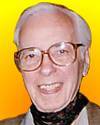 (source)
(source)
|
Ashley Montagu
(28 Jun 1905 - 26 Nov 1999)
British anthropologist who is noted for his works popularizing anthropology and science, including The Elephant Man.
|
Ashley Montagu
“Servomechanism … mass-produced by unskilled labor”
Illustrated Quote - Large (800 x 400 px)
More Ashley Montagu quotes on science >>
This quote, as a definition of man, is found in a number of Ashley Montagu’s works spanning several decades. It made an early appearance in 1963 in a paper by Ashley Montagu in the Journal of Neuropsychiatry on “Mechanisms in Anxiety,” and expressed a concern about the resulting overcrowding and the “day of reckoning” had arrived.
His quote appears again in his “Nostrums and Prescriptions”1 printed in the U.S. Congress Population Crisis hearings of 1965 by the Subcommittee on Foreign Aid expenditures. Here, he begins by praising the role of DDT in decreasing mortality rates in many regions of the world. Significantly, high numbers of births were no longer being balanced by the previous higher morality rate. He used the quote as a definition of man, to highlight how with continued reproduction came impending problems of overpopulation.
This definition of man also appeared in the Proceedings of the Sixth Annual Governor’s Conference on Aging published in 1967. It is cited several more times by other writers, or part of an essay collection, in succeeding years.
Ashley Montagu himself used his definition of man again in 2000 at the opening of a Foreward2 he wrote, subtitled “Origin of the Specious,” for a book by Robin Fox, The Passsionate Mind, slightly modified:
“Man is the only 150 pound nonlinear servomechanism that can be wholly reproduced by unskilled labor.”
2 'Forward: Origin of the Specious' for Robin Fox, The Passionate Mind: Sources of Destruction and Creativity (2000), xxi.
- Science Quotes by Ashley Montagu.
- 28 Jun - short biography, births, deaths and events on date of Montagu's birth.
- Ashley Montagu - context of quote “The scientist believes in proof” - Large image (800 x 400 px)
- Ashley Montagu - context of quote “Certainty is never an end, but a search” - Medium image (500 x 250 px)
- Ashley Montagu - context of quote “Certainty is never an end, but a search” - Large image (800 x 400 px)
- Ashley Montagu - context of quote “Servomechanism … mass-produced by unskilled labor” - Medium image (500 x 250 px)









